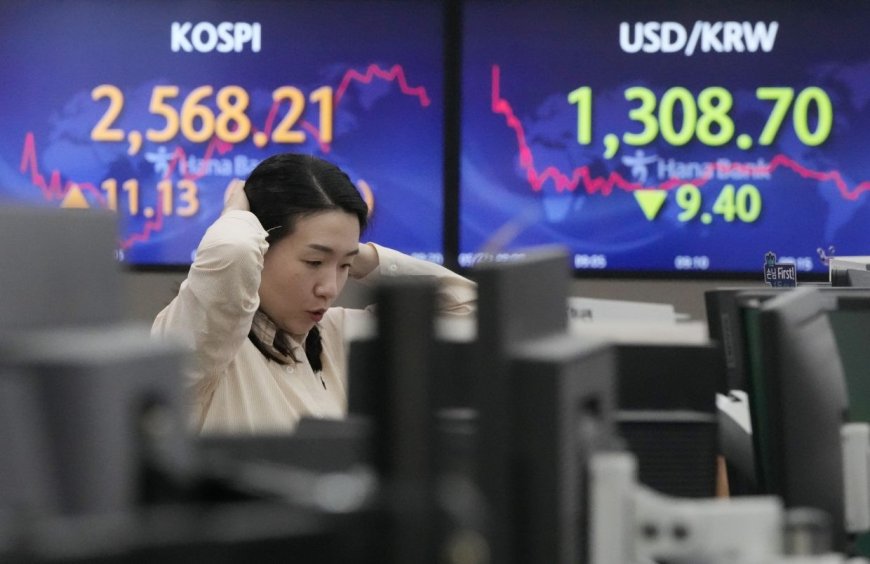Asian Markets React to Wall Street's Early 2024 Decline: Key Shifts, Stock Movements, and Global Economic Insights
The impact of Wall Street's decline on Asian markets. Analyze stock movements, sectoral shifts, and global economic dynamics shaping financial landscapes in 2024

Asian financial markets faced a downturn on Wednesday, mirroring the negative trend on Wall Street and diminishing the substantial gains achieved in the previous year. Key indices in Hong Kong and other major financial centers experienced declines, influenced by various factors affecting different sectors.
Hong Kong's Hang Seng Records a 1% Loss
The Hang Seng index in Hong Kong saw a decline of 1%, primarily attributed to a 2% drop in technology-related shares. This downturn set the tone for other markets in the region, creating a ripple effect.
Mixed Performances in Chinese Gaming Stocks
Interestingly, amid the overall decline, Chinese gaming companies, such as Tencent Holdings and Netease, witnessed positive movements. Reports of a senior official's dismissal, responsible for overseeing China's gaming industry, spurred optimism, leading to price increases in these stocks.
Varied Performance Across the Region
Australia's S&P/ASX 200 faced a notable decline of 1.4%, signaling a broader impact on regional markets. South Korea's benchmark recorded a substantial slump of 2.3%, a significant deviation from its recent 19-month high. Other markets, including Bangkok's SET and India's Sensex, experienced marginal losses.
Wall Street's Influence on Asian Markets
The negative trend in Asian markets was a reflection of Wall Street's performance on Tuesday. The S&P 500 slipped by 0.6%, while the Dow Jones Industrial Average saw a modest increase of 0.1%. The Nasdaq composite, however, led the decline with a notable drop of 1.6%.
Sectoral Impact on Wall Street
Last year's top-performing stocks, including Apple, Nvidia, and Meta Platforms, witnessed significant declines. Apple, in particular, recorded its worst day in nearly five months with a 3.6% loss.
Resilience in Health Care Stocks
Amid the broader market decline, health care stocks demonstrated resilience. Moderna saw a remarkable 13.1% jump, contributing to the positive performance of the Dow. Amgen and UnitedHealth Group also recorded gains, providing some stability in an otherwise volatile market.
Anticipation of a Market Pause
Investors had been anticipating a potential pause in the market's robust rally, which had propelled the S&P 500 to nine straight weeks of gains. The optimism was driven by hopes that the Federal Reserve's approach to high inflation would strike a delicate balance.
Economic Reports and Federal Reserve Focus
The day also witnessed reports indicating potential weaknesses in the U.S. manufacturing industry. A separate report highlighted a slowdown in construction spending in November. These reports, along with the release of Federal Reserve meeting minutes, are expected to provide further insights into the economic landscape.
Market Response and Outlook
Both stocks and Treasury yields experienced a regression, with the 10-year Treasury yield rising to 3.94%. The performance of U.S. crude oil and Brent crude remained relatively stable.
As the week progresses, investors are keenly awaiting additional high-profile economic reports, including data on U.S. job openings and the U.S. government's monthly job growth tally.
In summary, the recent downturn in Asian markets reflects a complex interplay of global economic factors, impacting various sectors differently. Investors remain watchful as they navigate through uncertainties in the financial landscape.
Also Read: Global Markets Finish Strong in 2023: Record Highs and Positive Trends































































